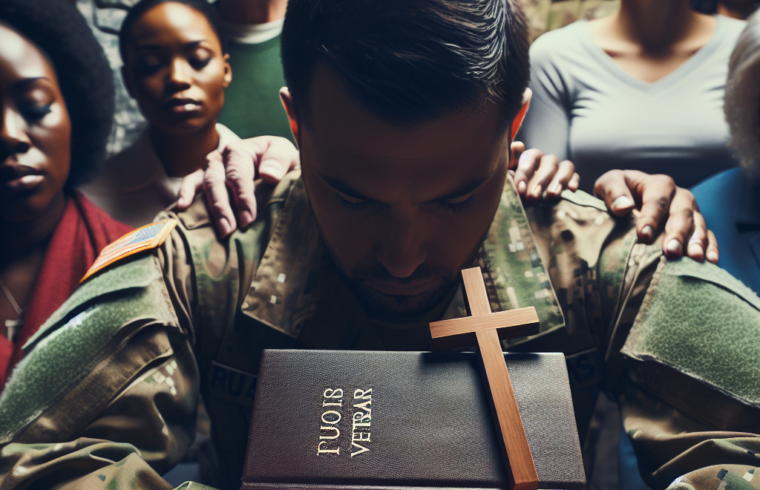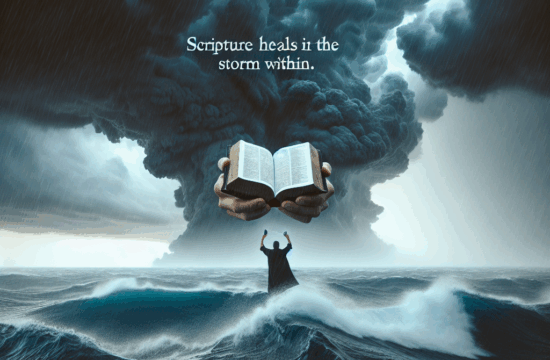==> Thank you for reading this post! Click Here If you are looking for support and Victory over PTSD.
Recognizing the Impact of Trauma
Understanding Trauma
As someone who’s walked alongside veterans, I’ve seen how trauma can hit differently for each individual. Trauma isn’t just about the event itself; it’s about how each person processes their experience. For many Christian veterans, this means grappling not only with memories of combat, but also with their beliefs and values. They often find themselves asking, “Why did this happen to me?” or “How can I reconcile my faith with these experiences?”
It’s essential to acknowledge that trauma can manifest in countless ways. Some veterans might face anxiety, depression, or even anger. Others might withdraw, isolating themselves from friends and family. This recognition is the first step towards healing—realizing that these feelings are not signs of weakness, but rather human responses to extraordinary circumstances.
When veterans embrace their trauma, it allows them to begin the journey of healing. This isn’t about dwelling in the pain; it’s about understanding it. Recognizing trauma’s impact lays a strong foundation for moving toward recovery and restoration.
Spiritual Struggles
One of the most challenging aspects for Christian veterans dealing with trauma is the internal conflict they may experience regarding their faith. There can be a profound sense of disconnection from God after facing unimaginable horrors. Many veterans struggle with the belief that their experiences have somehow made them unworthy of God’s love.
For me and others I’ve talked to, these spiritual struggles can be overwhelming. Questions like, “How could God allow this to happen?” linger in our minds. This crisis of faith can lead many to distance themselves from their spiritual communities, thinking they don’t belong anymore.
Encouraging fellowship and support through church activities or veteran-specific groups can be a game-changer. Engaging in conversations about these dilemmas can help veterans find peace, comfort, and ultimately, a path back to their faith.
The Importance of Community
When you’re a veteran dealing with trauma, support is everything. I can’t stress enough how vital it is to find a community of people who understand. Being surrounded by fellow veterans who have faced similar circumstances offers an intimate bond that can’t be replicated.
Groups like veterans’ outreach programs or church support groups provide safe spaces for sharing and healing. From personal experiences, I’ve seen how discussions can lead to breakthroughs, allowing individuals to witness shared struggles and solutions amongst one another.
A community grounded in faith encourages veterans to share their stories without judgment. This sense of belonging not only validates their feelings but creates a network of support that fosters healing and growth.
Seeking Professional Help
Therapeutic Options
It’s essential to consider professional help when dealing with trauma. In my journey, I’ve learned that therapy isn’t just for the “broken”—it’s a proactive step towards healing. Different types of therapies, like cognitive-behavioral therapy (CBT), have proven effective for many veterans.
Finding a therapist who understands both trauma and faith can feel like finding a needle in a haystack. But organizations specifically catering to veterans often have lists of trusted professionals. I’ve explored different options, and I can safely say it’s more about finding someone you connect with than adhering to one specific method.
Group therapy can also offer a unique touch, allowing individuals to share their experiences within the context of community. This setup often leads to creating valuable connections and understanding among group members.
Integrating Faith and Therapy
Many veterans find that their faith plays a significant role in healing. Integrating spiritual elements into therapy can boost the healing process. As a veteran, I personally found solace in working with counselors who respect and incorporate faith into their therapeutic approaches.
This could involve prayer, scripture readings, or simply discussing how one’s faith can play a role in their healing journey. For countless veterans, these elements can offer comfort and a sense of purpose amidst the chaos.
Moreover, spiritual direction can blend seamlessly with professional therapy, providing a holistic approach to healing. It’s a beautiful way to explore faith alongside mental and emotional recovery.
Confronting the Stigma
Addressing the stigma surrounding mental health is crucial for many veterans, myself included. We often face societal pressures that shape how we view seeking help as a weakness. This mindset can be toxic, severely hindering the healing process.
Get Support and Help with Recovery! Visit us for more Information and Support
By speaking openly about our challenges, we dismantle that stigma. Sharing stories and experiences fosters understanding, paving the way for more veterans to seek support. It’s vital to foster an environment where veterans feel safe discussing mental health without fear of judgment.
Whether it’s through community outreach or personal testimony, breaking down that stigma is key. We all need to be part of that change in perception—eliminating the “suck it up” mentality and promoting the strength found in vulnerability.
Finding Hope and Restoration
Embracing New Beginnings
One of the most enriching aspects of the healing journey is the opportunity to embrace new beginnings. While trauma can feel all-consuming, it doesn’t have to define who we are. I remember the moment I realized that my experiences were part of my story but not the entirety of it.
Veterans often find new passions or hobbies in their recovery journey. Whether it’s art, music, or volunteering, these activities can reignite purpose and joy in life. It’s about finding what fuels your soul and brings a sense of fulfillment.
In my experience, these new beginnings often lead veterans to become advocates for others. Sharing one’s story can create a ripple effect, inspiring others to seek the healing they deserve. This perspective shift is core to finding hope and moving forward.
Utilizing Faith as a Resource
Faith can serve as an incredible resource for healing. Personally, I found that leaning on scriptural teachings and connecting with faith through prayer provided a powerful sense of reassurance. Many veterans can rediscover the strength in their beliefs, using spiritual practices as tools for coping.
Incorporating faith-based activities like journaling, praying, and attending church services can help foster a deeper connection to God. These practices can guide veterans to discover the healing and grace offered through faith.
Through these experiences, many veterans learn that faith isn’t about having all the answers, but about trusting in a larger plan. It’s a journey of a lifetime, and taking those steps can be immensely empowering.
Continuing the Journey
Healing from trauma is not a destination; it’s an ongoing journey. I’ve learned that it’s essential to remain connected with others, continue seeking support, and explore personal growth. It’s about recognizing that it’s okay to have setbacks and that every step forward counts.
Regularly checking in with oneself and engaging in therapeutic practices can help maintain progress. Continuous reflection allows veterans to identify what still needs healing and empowers them to take charge of their growth.
Every day can be a step towards restoration. We can choose to face challenges with the knowledge that we have support, tools, and inner strength guiding us along the way.
Frequently Asked Questions
1. Why is recognizing trauma important for Christian veterans?
Recognizing trauma is vital because it helps veterans understand their experiences and feelings. It allows them to see that their reactions are valid and emphasizes the need for healing.
2. How can faith play a role in the healing process?
Faith can provide comfort and purpose during the healing journey. Many veterans find strength through prayer, scripture, and spiritual community, which can be instrumental in their recovery.
3. What should I look for in a therapist if I need help?
Look for a therapist who understands both trauma and the unique aspects of veteran life. Someone who respects and integrates faith into therapy can create a more personalized approach to your healing process.
4. Can veterans benefit from support groups?
Absolutely! Support groups offer a safe space where veterans can share their experiences, find camaraderie, and receive affirmation from others who understand their challenges.
5. How can I take the first step towards healing?
The first step is often acknowledgment. Recognize that you’re struggling and seek help, whether through community, professional support, or faith. From there, explore different avenues of healing that resonate with you.













